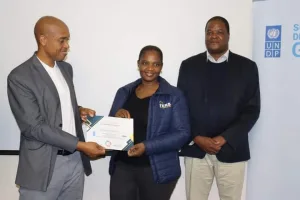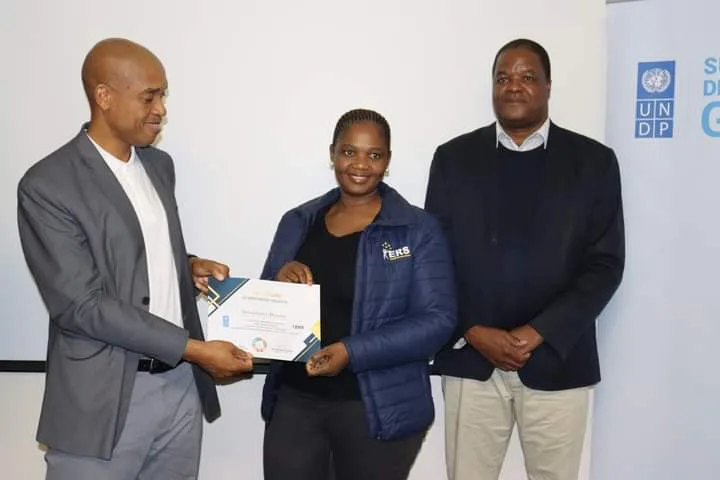By Delisa Thwala
Exciting news as Eswatini Revenue Service surpasses revenue targets for 2023, paving the way for SDG’s success.
The United Nations Development Programme (UNDP) supports, that tax auditors are enhancing skills to boost compliance in key industries. Strong partnerships driving progress towards a sustainable future.
About 30 Eswatini Revenue Service Auditors received training to enhance the country’s efforts to mobilize domestic resources.
ALSO READ: ERS revenue takeover set to…
Despite the difficult environment resulting from the impact of the Covid-19 pandemic on the economy, extreme weather patterns, and ongoing geopolitical tensions around the world, the Eswatini Revenue Service (ERS) has surpassed its revenue collection target for the financial year 2023.
Receipts from the Southern African Customs Union have also increased in this period.
All these developments place the country on a good pathway towards achieving the Sustainable Development Goals (SDGs) by 2030.
As the country celebrates these achievements, UNDP affirms its commitment to support the Government of the Kingdom of Eswatini to strengthen its fiscal and taxation policies to increase domestic revenue mobilization.
This support also aims to ensure that these policies align with the country’s commitments to the SDGs and that the country retains a strong voice in regional and international forums supported by tangible evidence.
To this end, through UNDP technical support, 30 tax auditors from the ERS received training to enhance their understanding of the modalities of auditing the Construction and Manufacturing industries.

The five-day workshop was held at Sibane Sami Hotel, Ezulwini, from 08 to 12 April 2024 and aimed at enhancing the capacity of the auditors to understand the important income and expenditure issues, the various contracts and ecosystems used in these industries and the implications of each on the taxation of entities operating in these industries.
The construction and manufacturing industries have significant potential to support the country’s growth and developmental needs.
However, the nature and complexity involved in their business operations and contracts present a challenge for ERS to effectively monitor for tax purposes.
Supported under the UNDP SDG Finance, this partnership intends to ensure that the ERS can efficiently and effectively conduct the necessary compliance audits on the entities involved in these industries.
“The support comes at a time when we were very concerned about low compliance on construction and manufacturing and we’re happy that early in the year we have a consultant who will help unpack that sector and improve compliance,” said ERS Commissioner General, Brightwell Nkambule.
Nkambule also expressed his gratitude for the partnership with UNDP over the years which includes tackling cross-border tax crimes under the UNDP-supported Tax Inspectors Without Borders Initiative and exploring taxation opportunities presented by the growing digital services sector.
The support from UNDP included facilitation for the participation of the ERS and government in every important regional and global forum.
These include participation in the 2023 Dialogue on Tax and the Sustainable Development Goals, which was held in New York, USA, in November 2023, and the first UNDP Global Dialogue on Public Finance and Taxation for Gender Equality which was held in Istanbul, Turkey in February 2024.
Nkambule said through support from UNDP and other development partners, the ERS improved its domestic revenue such that the organization exceeded its target in the year 2023/24.
ALSO READ: ENPF appoints Futhi Tembe as…
“From this training, I learned that when we are auditing, we should not only look at the books presented to us by the taxpayer but also consider the processes involved in these industries and get data that will help us go deeper,” said Thabile Simelane, ERS Senior Tax Auditor, Domestic Taxes.
UNDP Tax Coordinator, Mduduzi Zwane, said through the training, UNDP is once again demonstrating its steadfast commitment to supporting the government in its efforts to strengthen the role of taxation in mobilising domestic resources needed to help the country achieve its SDGs’ targets by 2030.
Improving domestic revenue will help the government accelerate progress towards meeting its SDG targets such as ensuring access to clean water for rural populations.


